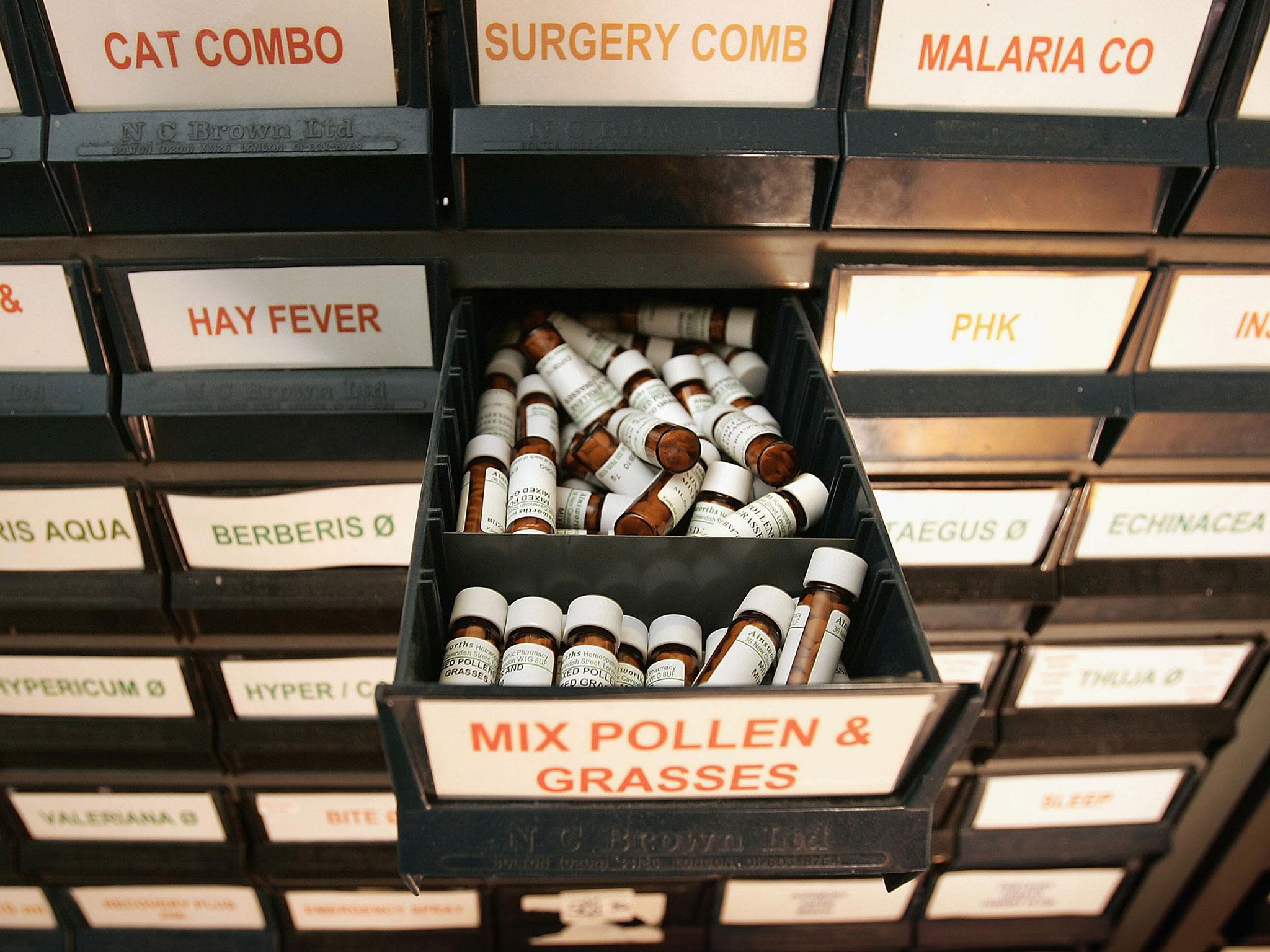Homeopathy 'quackery' should be cut from NHS, campaigners urge after study finds it ineffective
The NHS spends £5million a year on homeopathy

Campaigners have welcomed the latest study to show that homeopathy "treatments" are no more effective than a placebo, and called for the technique to be cut from the NHS.
A working group by Australia’s National Health and Medical Research Council reviewed 176 trials of homeopathy in 68 different health conditions to test whether the practice worked.
Writing about the study for the The BMJ journal blog, group chair Professor Paul Glasziou said he began the review with an “I don’t know attitude” but concluded homeopathy had “no discernible convincing effects”.
He added that Samuel Hahnemann, who created homeopathy in an attempt to move medicine on from blood-letting and purging, would be “disappointed by the collective failure of homeopathy to carry on his investigations, but instead to pursue a therapeutic dead end.”
Homeopathy is a controversial method based on the principle that “like cures like” and that diluting substances that cause particular symptoms can remove those symptoms in a patient.
“Many homeopathic remedies consist of substances that have been diluted many times in water until there is none or almost none of the original substance left,” the NHS states on its website.
Critics argue that this essentially means that homeopathic “remedies” are therefore no more than placebos and that the NHS is wasting money by annually spending £5million on them.
In 2010, the House of Commons Select Committee published a report concluding that homeopathy “is not efficacious” and that explanations back it are “scientifically implausible.”
However, the NHS currently offers homeopathic treatments in two hospitals as well as in a number of GP practices.
The Good Thinking Society, which campaigns against homeopathy, said the latest study bolstered scientific consensus that the “treatments” do not work.
Charity spokesman Michael Marshall told The Independent that offering homeopathy is "damaging the reputation of the NHS" and "boosting the reputation of complete quackery."
Stressing that he believes homeopathy should not be banned from public sale, he argued that people should be properly and impartially informed about what treatment actually involves.
He added that cutting homeopathy from the beleaguered health service would free up money for other services such as cancer treatment, as well as smoking cessation clinics and obesity awareness campaigns which save money in the long-term
“£5 million could go a long way to helping people who are currently ill and preventing people from getting ill and instead it is being frittered away on sugar pills. It is such a no brainer that this money is better spent elsewhere.”
He warned that although homeopathic “treatments” contain substances so diluted that they can no longer be detected and therefore cannot directly harm a person, Mr Marshall said that legitimising the treatment can lead people to taking problematic healthcare decisions.
While the NHS condones homeopathy it legitimises the practice, said Mr Marshall, citing cases where private homeopaths have claimed to cure cancer and advised patients to forego vaccines.
“The NHS could act as a pathway to these very dangerous claims very easily. And it’s very hard to track that kind of thing because there are very few people who say that I was given this advice that was deadly by a private homeopath because I first saw an NHS homeopath.”
Kier Liddle, a health services researcher at the University of Sterling, also highlighted the wider issues of homeopathy and those who visit developing countries to promote the idea.
“Homeopaths who declare they can treat malaria, dengue fever and even AIDS. Homeopaths funded largely by the worried well in the west. Homeopaths who seek the prestige and respectability of their 'treatment' being offered on the NHS.”
Responding to the study, the British Homeopathic Association told The Independent that Professor Glasziou “seriously misrepresented the nature of the clinical research evidence in homeopathy.”
"The review also focused on medical conditions and failed to recognise that homeopathy is based on individualised treatment, not on a named medical condition," it said.
The Department of Health said that the NHS has a "duty" to make sure money is spent on the most effective treatments.
Minister for Life Sciences, George Freeman MP said: "We are currently considering whether or not homeopathic products should continue to be available through NHS prescriptions. We expect to consult on proposals in due course."
Join our commenting forum
Join thought-provoking conversations, follow other Independent readers and see their replies
0Comments